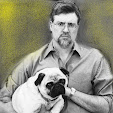At times, I feel like a reader (and filmgoer) with the opposite problem -- little grabs or excites me. I start books and don't finish them. I'm lukewarm about movies that others rave about. It's a problem, then, if I want to offer my views with a good semblance of fairness. (When I was younger and brash, I might've argued for critical "objectivity," but not anymore.)
 All of which brings me to David Carnoy's Knife Music. This is a good, entertaining book -- certainly worth noticing; I sucked it down in just a few days. It's the story of hotshot, semi-womanizing ER surgeon Ted Cogan who is (wrongly?) accused of the statutory rape (which is just plain rape in California) of a teenage patient. Cogan is a complex character, sympathetic yet cold, well-off and resourceful but in deep trouble. He's pitted, in part, against a dedicated police detective, Hank Madden.
All of which brings me to David Carnoy's Knife Music. This is a good, entertaining book -- certainly worth noticing; I sucked it down in just a few days. It's the story of hotshot, semi-womanizing ER surgeon Ted Cogan who is (wrongly?) accused of the statutory rape (which is just plain rape in California) of a teenage patient. Cogan is a complex character, sympathetic yet cold, well-off and resourceful but in deep trouble. He's pitted, in part, against a dedicated police detective, Hank Madden.While I semi-feverishly turned the pages of Knife Music, it also lagged in a few areas. First, too much backstory -- especially a chapter about Cogen. And too much detail. I'm on thinner ice here. The mystery writer needs a certain amount of detail to bury clues, and detail creates "l'effet de reel" (to fall back on my weak Roland Barthes). But when is extra detail too much? Consider, for instance, that Madden spies on Cogan "through a set of compact but powerful Nikon binoculars." I would've settled for "compact" and assumed that the cop had a good enough pair of binoculars for his job; I didn't need the brand. The book seems too full of this minutia. But maybe this is just me being cranky?
Though Cogan faces the prospect of an ugly, public trial and jail, he never seems in too much jeopardy. The book is set in the wealthy environs of Silicon Valley, with jaunts to the Stanford campus, a gated community, and a country club -- wealthy but not Sternwood-wealthy. Is there some sourness to this world of privilege, something that might be exposed? Carnoy succeeds with an engaging breezy novel. Should I fault him because I wanted rougher weather?
